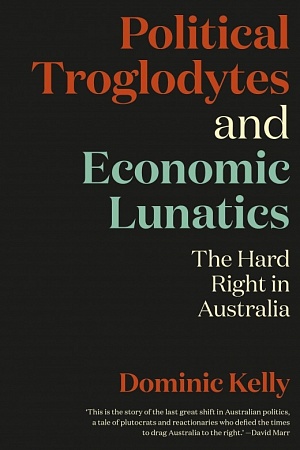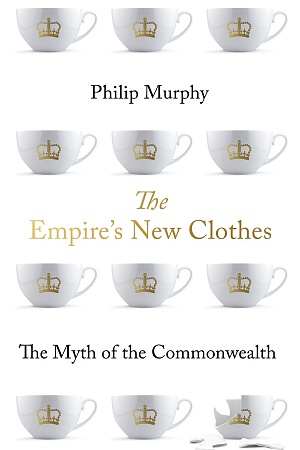Who blinks first
Lachlan Murdoch’s defamation proceedings against Crikey promised to be a test case on the new public interest defence. Following Murdoch’s discontinuation of his claim in April, the scope and application of the public interest defence to defamation await another appropriate vehicle.
Lachlan Murdoch commenced proceedings in the Federal Court of Australia, suing not only Private Media, the publisher of Crikey, but also its former editor-in-chief, Peter Fray, and its political editor, Bernard Keane. Subsequently, he applied to have Private Media’s chairman, Eric Beecher, and its chief executive officer, Will Hayward, added as respondents.
The proceedings arose out of a column by Keane published in late June 2022 under the headline, ‘Trump is a confirmed unhinged traitor. And Murdoch is his unindicted co-conspirator.’ In the column, Keane referred to ‘the Murdochs’ as being ‘unindicted co-conspirators’, along with former US president, Donald Trump, responsible for the 6 January attack on the Capitol.
Although Crikey initially took down the column in response to correspondence from Lachlan Murdoch’s solicitor, it subsequently changed its position. It reposted the article, then took out advertisements in The New York Times and The Canberra Times, challenging Murdoch to sue for defamation. Murdoch did just that.
Murdoch’s defamation proceedings in Australia did not occur in a vacuum. Also afoot at the same time were defamation proceedings in Delaware, brought by Dominion Voting Systems against Fox News. Dominion sued over repeated assertions by Fox News presenters and on-air guests that its voting systems were rigged to help the Democrats ‘steal’ the 2020 United States presidential election from Trump.
Prior to trial, Dominion received a vast amount of documentary evidence and depositions from key figures within Fox News and Fox Corporation, including Rupert Murdoch himself. This material disclosed that from the time of the 2020 election until after the Capitol insurrection, Rupert and Lachlan Murdoch doubted Trump’s assertion that he had won the presidential election but were willing to enable compères and commentators who subscribed to this conspiracy theory, so as not to alienate the Fox News audience. The Fox News audience had already been alienated by the news channel’s election-night reporting that the Democrats had won the key state of Arizona, taking it from the Republicans.
The revelations in the pre-trial disclosure were devastating to Fox News’s defence in the defamation proceedings brought by Dominion. To understand the full extent of the damage wrought by this material, one needs to know a little about US defamation law. Since the United States Supreme Court’s landmark decision in New York Times v Sullivan in 1964, it has been extremely difficult for plaintiffs with any public profile to sue for defamation in the United States. The plaintiff needs to prove that what has been published is false (which is the reverse of the position which pertains elsewhere in the English-speaking world, where the defendant has to prove what it published was true). The plaintiff also needs to prove that the defendant published with ‘actual malice’. Actual malice means either knowledge that what was published was false, or reckless indifference as to whether it was true or false. A defamation plaintiff in the United States faces a very high bar in order to establish liability. Yet Dominion was clearly on track to be able to establish liability against Fox News. The trial judge had made preliminary rulings that the allegations were clearly false. The material disclosed prior to trial provided a firm foundation for an argument that Fox News was motivated by actual malice. It was unsurprising then that, on the day the six-week trial was due to commence, the matter settled. (It is worth noting that a company like Dominion could not have sued for defamation in Australia because corporations have been presumptively precluded from suing for defamation across Australia since 2005.)
The settlement in Dominion v Fox News made legal and commercial sense for the Murdochs. The Murdochs avoided having to give evidence and, more importantly, being cross-examined on the damaging revelations. The amount agreed to – US$787.5 million – while vast, was not as much as Dominion had initially sought. Fox News also avoided having to agree to make an on-air apology or retraction. Dominion v Fox News is not the last of the voting machine defamation cases it faces. At the time of writing, Fox News still faces a defamation lawsuit from Smartmatic, one of Dominion’s competitors, over similar vote-rigging allegations, with a claim for even larger damages.
Compared to the US defamation proceedings, the stakes in Lachlan Murdoch’s Australian defamation proceedings against Crikey were, on one view, much lower. The damages he could have recovered in Australia would have been considerably smaller than those Fox News had agreed to pay Dominion. Damages for non-economic loss in Australia, comprising damage to reputation and injury to feelings, are capped, with the current limit being set at $443,000. This full amount would be awarded only in the most serious case. A successful plaintiff can also seek aggravated damages, for any additional hurt or humiliation they suffered, so long as they can prove that the defendant’s conduct was improper, unjustifiable, or lacking in bona fides. Exemplary (or punitive) damages cannot be awarded for defamation in Australia. Damages for economic loss might be claimed in Australia and are uncapped, but any amount sought and awarded would have been dwarfed by the amount received by Dominion.
Having settled the defamation case in the United States with Dominion in order to minimise the reputational harm done by the revelations in the pre-trial disclosure and to avoid cross-examination, it was difficult for Lachlan Murdoch to continue his defamation case against Crikey in Australia. This was particularly because Crikey was keen to rely on those revelations in its defence. It would have defeated the purpose of the settlement of the Dominion proceedings to continue with the Crikey proceedings.
There is another way in which the pursuit of the Crikey proceedings could have been self-defeating for the Murdochs’ media interests. A central defence relied upon by Crikey was the new public interest defence to defamation. This defence was one of the key reforms introduced across Australia (except for Western Australia and the Northern Territory) in 2021 in the first stage of the reforms to the national, uniform defamation laws. Along with the introduction of a requirement that the plaintiff prove serious harm to reputation, the public interest defence was intended to make Australia’s defamation laws less plaintiff-friendly. To win his case against Crikey, Lachlan Murdoch would have had to defeat Crikey’s public interest defence. If successful, he would be setting a precedent, which, while it might have secured him substantial damages in his own case, would also be used against mass media outlets in Australia in every other case in the future. On one view, it might be fairly said that it was not in the interests of Murdoch’s media outlets for Lachlan Murdoch to have won his case against Crikey.
With Lachlan Murdoch discontinuing his defamation proceeding, Crikey declared victory for public interest journalism. The determination of the actual operation of the new public interest defence to defamation has been deferred. The case then is not important for the precedent it establishes, because it establishes none. Like Christian Porter’s defamation proceedings against the ABC, Lachlan Murdoch’s case against Crikey demonstrates that strategy and commercial realities are just as important in high-stakes defamation cases as strict legalities. Ultimately, in these kinds of stand-offs, it comes down to who blinks first.
This article is one of a series of ABR commentaries on cultural and political subjects being funded by the Copyright Agency’s Cultural Fund.











Leave a comment
If you are an ABR subscriber, you will need to sign in to post a comment.
If you have forgotten your sign in details, or if you receive an error message when trying to submit your comment, please email your comment (and the name of the article to which it relates) to ABR Comments. We will review your comment and, subject to approval, we will post it under your name.
Please note that all comments must be approved by ABR and comply with our Terms & Conditions.